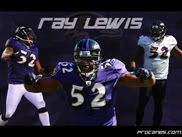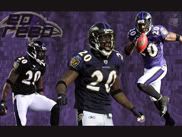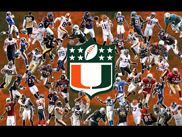


CLICK HERE TO ORDER!
------------------------------------------



------------------------------------------
 |
Who is the best proCane QB of all time? |
| Vinny Testaverde | |
| Jim Kelly | |
| Bernie Kosar | |
| Steve Walsh | |
| Craig Erickson | |
| Ken Dorsey | |
| Scott Covington | |
Who is the best all-time proCanes safety?
Ed Reed: 60%
Antrel Rolle: 2%
Brandon Meriweather: 1%
Sean Taylor: 33%
Bennie Blades: 4%
------------------------------------------ LINKS TO OUR FAVORITE SITES
AllCanes Blog
Canespace.com
Canesport.com
CanesTime.com
GridIronStuds.com
Manny Navaro's Blog
miami-hurricanes.com
Shandel Richardson's Blog
SportsBunch.com
UMSportsHallofFame.com
------------------------------------------
Tracking proCanes
Photo of the Week
Alex Cora
Andre Johnson
Andrew Bain
Andrew Williams
Anthony Wollschlager
Antrel Rolle
Aubrey Huff
Baraka Atkins
Bennie Blades
Bernie Kosar
Brad Kunz
Brandon Meriweather
Brett Romberg
Brian Barton
Brock Berlin
Bruce Johnson
Bryant McKinnie
Bubba Franks
Buck Ortega
Calais Campbell
Carl Walker
Charlton Jimmerson
Chris Myers
Chris Perez
Clinton Portis
Constantine Popa
Cortez Kennedy
DJ Williams
Damione Lewis
Dan Morgan
Danny Graves
Darius Rice
Darnell Jenkins
Darrell McClover
Denny Fortney
Derrick Crudup
Derrick Morse
Devin Hester
Duane Starks
Ed Reed
Edgerrin James
Eric Winston
Ethenic Sands
Frank Costa
Frank Gore
Gaby Sanchez
Glenn Sharpe
Greg Olsen
Guillermo Diaz
Jack McClinton
Jamaal Green
James Jones
Jarrett Payton
Jason Geathers
Jason Michaels
Javon Nanton
Jeff Feagles
Jeremy Shockey
Jerome McDougle
Jesse Armstead
Joel Rodriguez
Jon Beason
Jon Jay
Jon Peattie
Jonathan Vilma
Kareem Brown
Kellen Winslow
Kelly Jennings
Ken Dorsey
Kenard Lang
Kenny Holmes
Kenny Phillips
Kevin Brinkworth
Kevin Everett
Kyle Wright
Lamar Thomas
Lance Leggett
Leon Searcy
Leon Williams
Magic Benton
Marcus Maxey
Martin Bibla
Michael Barrow
Michael Irvin
Mike Piazza
Mike Rumph
Najeh Davenport
Nate Webster
Nick Luchey
Orien Harris
Pat Burrell
Phillip Buchanon
Quadtrine Hill
Randall Hill
Rashad Butler
Ray Lewis
Reggie Wayne
Renee Taylor
Rob Chudzinski
Robert Hite
Roger McIntosh
Roscoe Parrish
Ryan Braun
Ryan Moore
Santana Moss
Santonio Thomas
Sean Taylor
Sinorice Moss
Sherko Haji-Rasouli
Spencer Adkins
Steve Walsh
Tamara James
Tanard Davis
Tavares Gooden
Teraz McCray
The Rock
The U
Thomas Carroll
Todd Sievers
Tony Tella
Tyrone Moss
Vernon Carey
Vince Wilfork
Vinny Testaverde
Warrren Sapp
William Joseph
Willis McGahee
Photo of the Week
-----------------
Alfredo RobertsAlex Cora
Andre Johnson
Andrew Bain
Andrew Williams
Anthony Wollschlager
Antrel Rolle
Aubrey Huff
Baraka Atkins
Bennie Blades
Bernie Kosar
Brad Kunz
Brandon Meriweather
Brett Romberg
Brian Barton
Brock Berlin
Bruce Johnson
Bryant McKinnie
Bubba Franks
Buck Ortega
Calais Campbell
Carl Walker
Charlton Jimmerson
Chris Myers
Chris Perez
Clinton Portis
Constantine Popa
Cortez Kennedy
DJ Williams
Damione Lewis
Dan Morgan
Danny Graves
Darius Rice
Darnell Jenkins
Darrell McClover
Denny Fortney
Derrick Crudup
Derrick Morse
Devin Hester
Duane Starks
Ed Reed
Edgerrin James
Eric Winston
Ethenic Sands
Frank Costa
Frank Gore
Gaby Sanchez
Glenn Sharpe
Greg Olsen
Guillermo Diaz
Jack McClinton
Jamaal Green
James Jones
Jarrett Payton
Jason Geathers
Jason Michaels
Javon Nanton
Jeff Feagles
Jeremy Shockey
Jerome McDougle
Jesse Armstead
Joel Rodriguez
John Routh
John SalmonsJon Beason
Jon Jay
Jon Peattie
Jonathan Vilma
Kareem Brown
Kellen Winslow
Kelly Jennings
Ken Dorsey
Kenard Lang
Kenny Holmes
Kenny Phillips
Kevin Brinkworth
Kevin Everett
Kyle Wright
Lamar Thomas
Lance Leggett
Leon Searcy
Leon Williams
Magic Benton
Marcus Maxey
Martin Bibla
Michael Barrow
Michael Irvin
Mike Piazza
Mike Rumph
Najeh Davenport
Nate Webster
Nick Luchey
Orien Harris
Pat Burrell
Phillip Buchanon
Quadtrine Hill
Randall Hill
Rashad Butler
Ray Lewis
Reggie Wayne
Renee Taylor
Rob Chudzinski
Robert Hite
Roger McIntosh
Roscoe Parrish
Ryan Braun
Ryan Moore
Santana Moss
Santonio Thomas
Sean Taylor
Sinorice Moss
Sherko Haji-Rasouli
Spencer Adkins
Steve Walsh
Tamara James
Tanard Davis
Tavares Gooden
Teraz McCray
The Rock
The U
Thomas Carroll
Todd Sievers
Tony Tella
Tyrone Moss
Vernon Carey
Vince Wilfork
Vinny Testaverde
Warrren Sapp
William Joseph
Willis McGahee
24 May 2009
17 May 2009
10 May 2009
03 May 2009
26 April 2009
19 April 2009
12 April 2009
05 April 2009
29 March 2009
22 March 2009
15 March 2009
08 March 2009
01 March 2009
22 February 2009
15 February 2009
08 February 2009
01 February 2009
25 January 2009
18 January 2009
11 January 2009
04 January 2009
28 December 2008
21 December 2008
14 December 2008
07 December 2008
30 November 2008
09 November 2008
02 November 2008
26 October 2008
19 October 2008
12 October 2008
05 October 2008
28 September 2008
21 September 2008
14 September 2008
07 September 2008
31 August 2008
24 August 2008
17 August 2008
10 August 2008
03 August 2008
27 July 2008
20 July 2008
13 July 2008
06 July 2008
29 June 2008
22 June 2008
15 June 2008
08 June 2008
01 June 2008
25 May 2008
18 May 2008
11 May 2008
04 May 2008
27 April 2008
20 April 2008
13 April 2008
06 April 2008
30 March 2008
23 March 2008
16 March 2008
09 March 2008
02 March 2008
24 February 2008
05 August 2007
29 July 2007
08 July 2007
01 July 2007
24 June 2007
17 June 2007
10 June 2007
03 June 2007
27 May 2007
20 May 2007
13 May 2007
06 May 2007
29 April 2007
22 April 2007
15 April 2007
08 April 2007
01 April 2007
25 March 2007
18 March 2007
11 March 2007
04 March 2007
25 February 2007
18 February 2007
11 February 2007
04 February 2007
28 January 2007
21 January 2007
14 January 2007
07 January 2007
31 December 2006
24 December 2006
17 December 2006
10 December 2006
03 December 2006
26 November 2006
19 November 2006
12 November 2006
05 November 2006
29 October 2006
22 October 2006
15 October 2006
08 October 2006
01 October 2006
24 September 2006
17 September 2006
10 September 2006
03 September 2006
27 August 2006
20 August 2006
13 August 2006
17 May 2009
10 May 2009
03 May 2009
26 April 2009
19 April 2009
12 April 2009
05 April 2009
29 March 2009
22 March 2009
15 March 2009
08 March 2009
01 March 2009
22 February 2009
15 February 2009
08 February 2009
01 February 2009
25 January 2009
18 January 2009
11 January 2009
04 January 2009
28 December 2008
21 December 2008
14 December 2008
07 December 2008
30 November 2008
23 November 2008
16 November 200809 November 2008
02 November 2008
26 October 2008
19 October 2008
12 October 2008
05 October 2008
28 September 2008
21 September 2008
14 September 2008
07 September 2008
31 August 2008
24 August 2008
17 August 2008
10 August 2008
03 August 2008
27 July 2008
20 July 2008
13 July 2008
06 July 2008
29 June 2008
22 June 2008
15 June 2008
08 June 2008
01 June 2008
25 May 2008
18 May 2008
11 May 2008
04 May 2008
27 April 2008
20 April 2008
13 April 2008
06 April 2008
30 March 2008
23 March 2008
16 March 2008
09 March 2008
02 March 2008
24 February 2008
17 February 2008
10 February 2008
03 February 2008
27 January 2008
20 January 2008
13 January 2008
06 January 2008
30 December 2007
23 December 2007
16 December 2007
09 December 2007
02 December 2007
25 November 2007
18 November 2007
11 November 2007
04 November 2007
28 October 2007
21 October 2007
14 October 2007
07 October 2007
30 September 2007
23 September 2007
16 September 2007
09 September 2007
02 September 2007
26 August 2007
19 August 2007
12 August 200705 August 2007
29 July 2007
22 July 2007
15 July 200708 July 2007
01 July 2007
24 June 2007
17 June 2007
10 June 2007
03 June 2007
27 May 2007
20 May 2007
13 May 2007
06 May 2007
29 April 2007
22 April 2007
15 April 2007
08 April 2007
01 April 2007
25 March 2007
18 March 2007
11 March 2007
04 March 2007
25 February 2007
18 February 2007
11 February 2007
04 February 2007
28 January 2007
21 January 2007
14 January 2007
07 January 2007
31 December 2006
24 December 2006
17 December 2006
10 December 2006
03 December 2006
26 November 2006
19 November 2006
12 November 2006
05 November 2006
29 October 2006
22 October 2006
15 October 2006
08 October 2006
01 October 2006
24 September 2006
17 September 2006
10 September 2006
03 September 2006
27 August 2006
20 August 2006
13 August 2006

